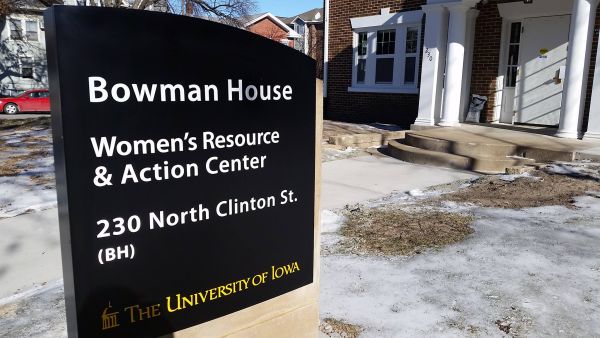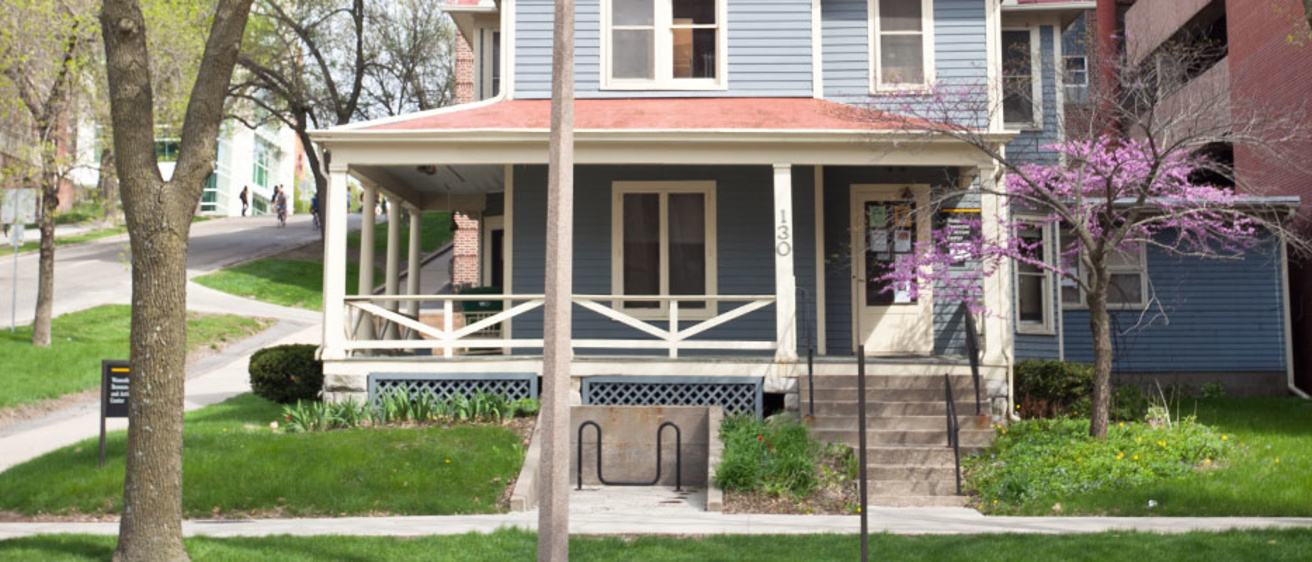Main navigation
The 1970’s: WRAC begins
The history of the Women’s Resource and Action Center (WRAC) goes back to the early 70’s. In 1971, a group of women who had been active in the new left movement in Iowa City organized and named themselves the Women’s Liberation Front. Like many other women in urban centers across the United States, they met to discuss their shared oppression as women and to search for solutions to their common problems. For many women, the recognition that oppression had a major impact on their lives was a new revelation and naming sexism was the first act of resistance to the forces that had kept women from doing for themselves.
With a new consciousness of women’s capabilities, feminist collectives blossomed in the form of women’s presses, women’s bookstores, film co-ops, and women’s centers. In Iowa City, the Women’s Liberation Front took action by petitioning The University of Iowa to recognize the group’s purpose and work. They asked for the University to counter and combat sexism in the institution first by promoting women’s courses, groups, and skills exchanges, and second, by establishing a permanent space where women could meet. The Women’s Center was born and housed on The University of Iowa campus for six years at 3 E. Market Street. The Center operated as a collective, in which representatives met on Sunday evenings to make policy and budget decisions.
In 1974, the Women’s Center became known as the Women’s Resource & Action Center. When the Alumni Records building was vacated in the summer of 1976, the Center moved to a more spacious and charming house at 130 N. Madison Street. In 2016, WRAC moved to the Bowman House at 230 N. Clinton Street.
The 1980’s: WRAC expands its reach
WRAC walking in the Iowa City ParadeIn the 80’s, women’s groups began to recognize parallels between the oppression of women and the oppression of people of color, people with disabilities, the elderly, and lesbians and gays. At WRAC, a group of women of color began to meet and challenge the community’s perspective on race. The Women Against Racism Committee formed to support each other in confronting racism and other forms of oppression. WRAC’s local and national reputation for engaging in and supporting anti-oppression work soared. WRAC provided leadership in articulating the importance of addressing the interlocking forms of oppression.
The 1990’s: WRAC triumphs
The 1990’s brought triumphs, like the Jean Y. Jew sexual harassment and slander decision against The University of Iowa. Dr. Jew’s case helped establish policies and legal precedents that contribute toward the goal of creating an environment in which every individual can work and learn regardless of age, gender, ethnicity, religion, sexual orientation or disability. The Center, along with the Council on the Status of Women, established the Jean Y. Jew Women’s Rights Award to be given annually to someone who has made a difference for women. The nineties also ushered in a new focus on expanding the Center’s capacity by enhancing volunteer programs, strengthening its group services, and by increasing fund development efforts.
WRAC today
Today, the Center is a small department within the Division of Student Life at The University of Iowa. Housed on the University campus, the Center is positioned to encourage collaboration between scholars and activists—suggesting or perhaps demanding that one can be both. The Center continues its long tradition of serving members of both the greater Iowa City area and the University of Iowa community.

